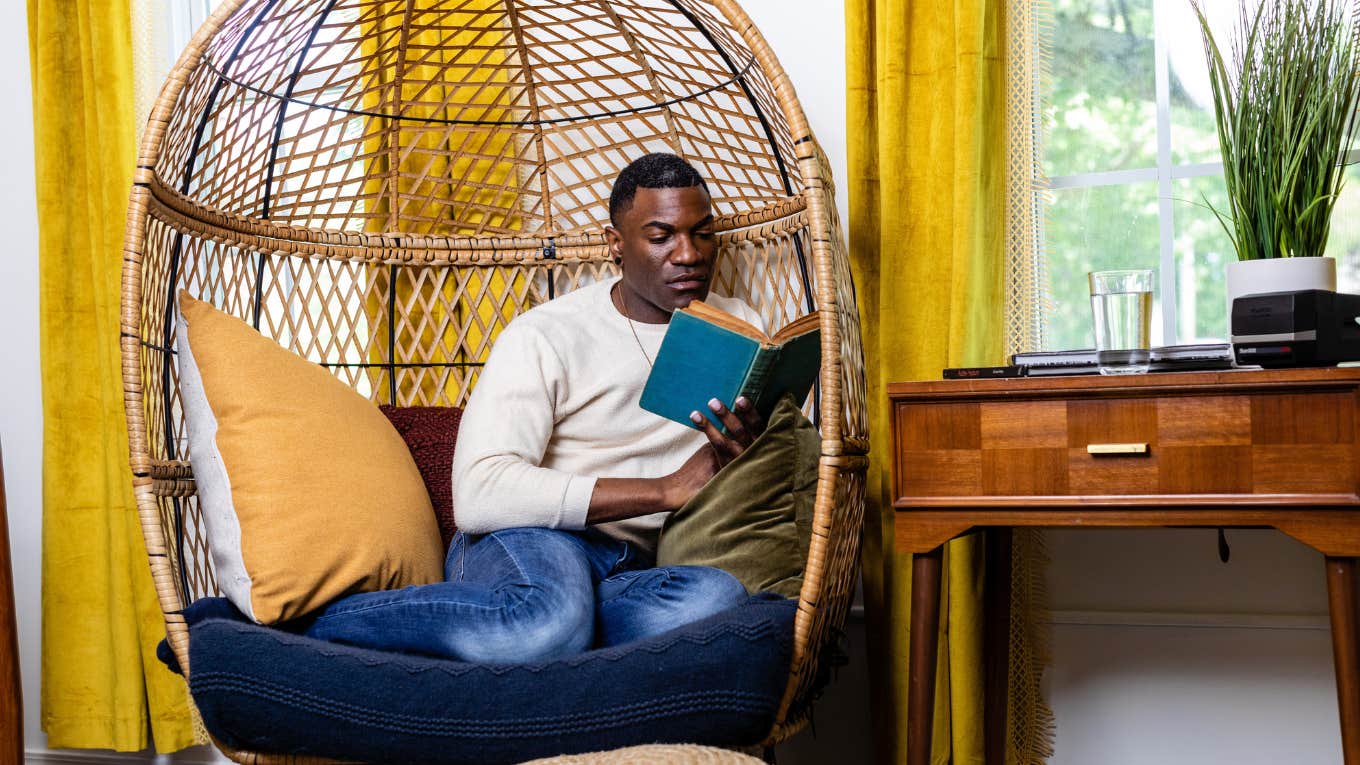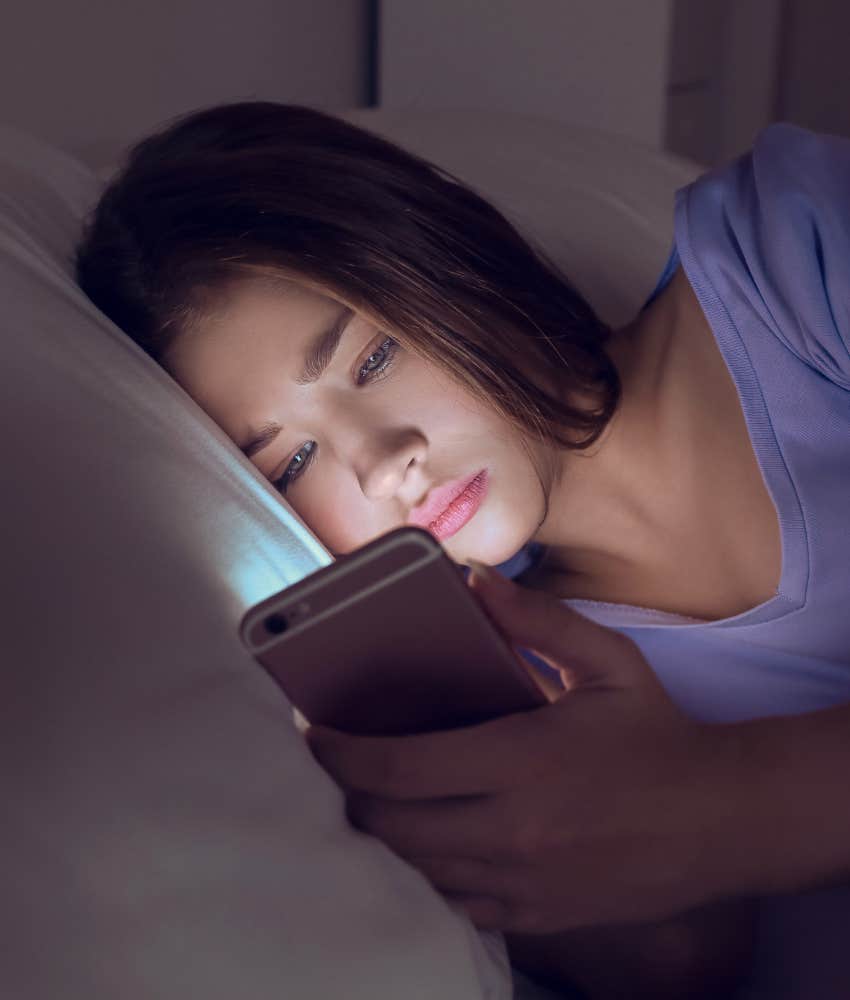Psychologist Shares 6 Ways To Indulge In Self-Care Without Spending A Lot Of Money
There are ways to support yourself without spending a dime.
 Amber N Ford | Canva Pro
Amber N Ford | Canva Pro Clinical psychologist and scientist Dr. Raquel Martin on TikTok is passionate about supporting systemically isolated communities, including those excluded from the typical notions of routine self-care. She asserts that self-care has become exclusionary based on financial means, but it doesn't have to be.
In fact, true self-care doesn't have to cost a penny in many cases, and she offers a variety of activities that cost little to nothing but pack a punch in terms of fueling the soul.
Here are 6 self-care practices that don't cost a lot of money, according to a psychologist:
1. Plugging in your phone across the room at night
“One of the biggest misconceptions about mental health right now is the whole ‘self-care’ aspect,” Dr. Martin shared in a recent TikTok. “Thinking that it’s only about indulgence. I can’t stand the fact that so many companies have decided to monetize self-care.”
 pixelshot | Canva Pro
pixelshot | Canva Pro
Self-care practices can also be as simple as plugging in your phone away from your bed before going to sleep — setting yourself up for a restful night and a calming morning away from the stressors of your phone.
Studies show that checking your phone first thing in the morning does nothing but heighten your anxiety before starting your day. It also activates our reactive “fight-or-flight” response. Talk about starting your day off on the wrong foot.
2. Not answering every call to your phone
Another self-care tip Dr. Martin suggested is to be picky about who you spend time talking to — or at the very least, don’t answer phone calls you don’t feel like answering.
“If I don’t have the bandwidth to have a conversation,” she said, “then I don’t have the bandwidth.” Set boundaries with the people in your life, especially if you already have people-pleasing tendencies, so that you don’t overstretch your grace to people and situations that don’t deserve it.
3. Saying no to things you don’t want to do
Even with friends and family that you love, certain events and get-togethers can be overwhelming — especially if you’re overdue for some relaxation. Don’t be afraid to say “no” to these invites and instead prioritize alone time to connect with yourself.
 Eliza Alves | Canva Pro
Eliza Alves | Canva Pro
Simply making the choice to set time aside for yourself is an act of “self-care.” You’re recognizing, acknowledging, and acting on behalf of your needs, even if it’s not easy.
“It’s wild for me to not do something that I don’t want to do?” Dr. Martin questions, in response to negative feedback she’s gotten from her circle. Don’t let other people’s insecurities pressure you into invites and events that you don’t feel comfortable or energetic enough to be attending — whether or not you choose to explain “why” is completely up to you.
4. Setting a budget
According to a CNN survey, over 70% of Americans struggle with money stress — whether that’s living paycheck-to-paycheck, being relatively uneducated when it comes to their finances, or struggling to pay bills at the end of the month. Setting a budget, educating yourself, or simply setting financial goals can be a method of self-care that not only keeps you from spending money but also saves you some.
“I don’t want to be sitting down at the end of the week thinking about all the things that I shouldn’t have bought,” Dr. Martin said. “Thinking about how that meal wasn’t even that good, or looking for receipts of things I can return.”
Set yourself up for success and implement “financial self-care” to reduce your money stress. It can make all the difference in your emotional and mental well-being.
5. Not drinking caffeine past 4 p.m.
“Stop drinking caffeine after 4 in the afternoon. Honestly, the time should be 2, but I’m a work in progress,” Dr. Martin joked. Studies show that caffeine intake as much as 6 hours before bedtime can significantly impact sleep duration and quality.
Some people get massages to unwind, others wear face masks, but the end goal is almost always to relax or de-stress. Utilize this free self-care tip to not only save money on coffee but also improve your sleep. And when you improve your sleep, everything else seems to fall into place.
6. Incorporating ‘light reads’ into your library
“Educational book self-care,” Dr. Martin started. “I don’t read trauma after trauma after trauma. I do have light reading. When I work with activists, and we discuss the aspect of ‘resistance fatigue’... I tell them to eat a cookie.”
 bbernard / Shutterstock.com
bbernard / Shutterstock.com
“Metaphorically and physically,” she explained. “Eat a cookie, and don’t regret it … None of my pleasures are guilty.” Introduce some “rom coms,” light fictional narratives, and even upbeat memoirs into your reading collection.
This might also manifest as an evening of “trash reality shows” or a meal that you wouldn’t typically make for yourself. “It’s hard to rage against the machine all the time… Take a break at times.”
Self-care can be indulgent and expensive, but realistically, true self-care is about placing value on your time.
“I’ll never forgive these industries for isolating individuals,” Dr. Martin said regarding the consumerism attached to self-care. “Showing individuals what they think self-care should be and making it indulgent and only indulgent. They’re not talking about the fact that sometimes self-care sucks.”
Showing up, prioritizing, and supporting yourself isn’t always a day at the spa. Sometimes, it’s being honest with yourself about habits you’ve been slacking on. From not answering the phone to escaping people-pleasing habits and giving yourself grace, self-care is often challenging and raw.
Don’t let consumerist culture tell you that you have to spend money to show up for yourself. Don’t let them fool you into thinking that the only way to relax is by pulling out your wallet.
Not everything has to be a route to financial hardship and money stress.
Zayda Slabbekoorn is a News & Entertainment Writer at YourTango who focuses on health & wellness, social policy, and human interest stories.

